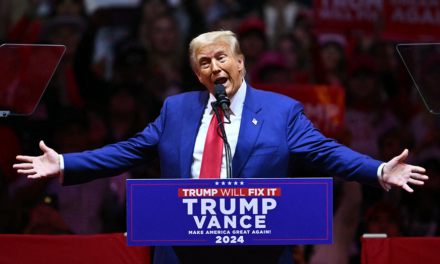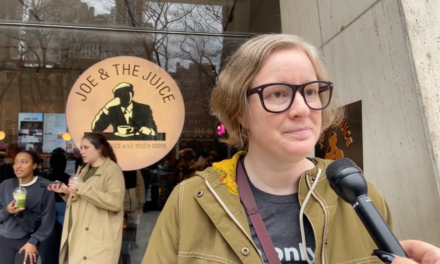In a world increasingly dominated by social media and a desire for deeper meaning in entertainment, comedian Adam Friedland has expressed a strong opinion on the role of humor in the comedic profession. Friedland emphasizes that comedians should primarily focus on their craft of being funny instead of attempting to take on the mantle of ‘modern-day philosophers.’ His insights contribute to ongoing discussions surrounding comedy, its responsibilities, and what it means to entertain in today’s society.
Friedland, known for his sharp wit and relatable humor, has sparked conversations about how comedians navigate today’s cultural landscape. The influence of platforms such as Twitter, Instagram, and TikTok has allowed comedians to reach a broader audience than ever before. However, it has also created an atmosphere where jokes can be heavily scrutinized, and performers often feel pressure to articulate profound messages in their routines.
One of Friedland’s central arguments is that the primary mission of a comedian is to make people laugh. While he acknowledges that comedy can certainly touch on social issues and provide commentary on various aspects of life, he warns against over-intellectualizing the craft. For him, attempting to elevate humor to a philosophical level may alienate audiences or detract from the essential purpose of comedy itself.
This perspective comes in light of a growing trend where many comedians infuse their acts with discussions about societal issues, identities, politics, and culture. While there is merit in using humor as a vehicle for commentary, Friedland suggests that the focus should remain on the laughs rather than veering off into complex moral debates that can often confuse or disinterest the audience.
Comedy as a Means of Connection
Friedland argues that comedy serves as a powerful means of connection among audiences. Laughter has a unique ability to foster a sense of community, bridging gaps between various backgrounds and experiences. When a comedian takes too significant a departure from humor in favor of deliberating heavier themes, they risk losing that connection, leaving audiences both perplexed and dissatisfied.
This sentiment is particularly relevant in the context of live performances where immediate audience reactions are crucial. Failure to garner laughs can lead to a shift in atmosphere and energy, leaving both the comedian and their audience in a state of discomfort. Friedland stresses the importance of maintaining the comedic rhythm and responding to audience feedback in real-time, which is often glossed over by those attempting to deliver a ‘message’ through humor.
The Evolution of Comedy
Comedy has evolved significantly over the years, and the platforms available for comedians to showcase their talents have diversified immensely. With the rise of podcasts, streaming services, and social media, comedians have numerous avenues to express themselves. This democratization of comedy allows for a mix of approaches and styles, with some opting for traditional joke-telling while others pursue narrative-driven or philosophical approaches.
However, Friedland points out that this evolution shouldn’t overshadow the core element of comedy: laughter. He asserts that there is a fine line between using comedy as a reflection on life and losing the essence of what makes stand-up enjoyable in the first place. In essence, Friedland advocates for a return to the foundational principles of comedy – crafting relatable and uproariously funny material that resonates broadly among audiences.
Balancing Humor and Responsibility
Of course, it’s impossible to ignore the role that comedians play in shaping cultural conversations. In many cases, comedians have become some of the most prominent voices in social commentary. The joke-tellers of today often serve as social commentators, addressing issues from cancel culture to political strife, sexism, and racism. Friedland recognizes this dual role but stresses the importance of balancing humor with responsibility.
In navigating sensitive subjects, comedians need to use their discretion and understand the potential repercussions of their jokes. Some have suffered backlash due to perceived insensitivity or a lack of understanding of the complexities surrounding the topics they address. However, Friedland warns against the impulse to stop being funny to avoid offending anyone. While responsibility in comedy is vital, the priority should remain on comedic effectiveness.
Friedland believes this high-wire act of comedy should rely on well-thought-out jokes rather than prioritizing woke sentiments over genuine humor. The most impactful comedians – from Richard Pryor to George Carlin – managed to address societal ills, all while delivering punchlines that elicited uproarious laughter. They layered their messaging with humor, allowing for audiences to engage without feeling lectured or alienated.
Comedic Integrity and Authenticity
Furthermore, Friedland discusses the significance of comedic integrity and authenticity. Comedians often build their careers based on their unique voice and perspective. In an attempt to keep pace with shifting cultural attitudes, many comedians risk diluting their original artistic expression by conforming to what’s deemed acceptable or profound. Friedland argues that authenticity prevails in the world of comedy, and relinquishing that authenticity to chase broader acceptance can lead to creative fatigue and a loss of individual identity.
By remaining true to themselves and their experiences, comedians not only enhance their act but also resonate more deeply with audiences. Listeners tend to appreciate humor that is genuine, as it often taps into shared experiences and emotions. With Friedland’s perspective, comedians are encouraged to embrace their quirks, flaws, and perceptions, using them as fertile ground for humor rather than trying to fit a mold of what’s current or trending in societal discourse.
Conclusion: The Heart of Comedy
Adam Friedland’s insights on comedy serve as a reminder of the heart of the craft: making people laugh. In today’s fast-paced and ever-evolving societal landscape, comedians must balance their role as entertainers with the responsibilities that come with addressing complex issues. However, it’s crucial to focus on the joy of laughter as the primary goal. By prioritizing humor over a desire to be seen as philosophers, comedians can cultivate an authentic and engaging comedic experience that connects deeply with audiences.
As Friedland highlights, in a world that can sometimes feel overwhelmingly serious and divided, laughter remains an essential tool for connection, healing, and entertainment. By embracing the art of being funny, comedians can navigate contemporary issues with grace while still adhering to the timeless mission of leaving audiences in stitches.































